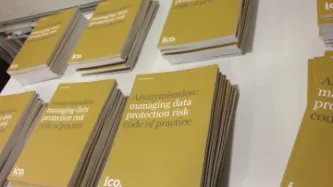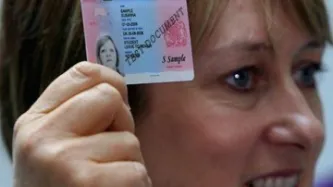Search
Content type: Examples
In June 2018, a panel set up to examine the partnerships between Alphabet's DeepMind and the UK's NHS express concern that the revenue-less AI subsidiary would eventually have to prove its value to its parent. Panel chair Julian Huppert said DeepMind should commit to a business model, either non-profit or reasonable profit, and noted the risk that otherwise Alphabet would push the company to use its access to data to drive monopolistic profits. In that case, DeepMind would either have to…
Content type: Examples
In October 2018 Amazon patented a new version of its Alexa virtual assistant that would analyse speech to identify signs of illness or emotion and offer to sell remedies. The patent also envisions using the technology to target ads. Although the company may never exploit the patent, the NHS had previously announced it intended to make information from its online NHS Choices service available via Alexa.
https://www.telegraph.co.uk/technology/2018/10/09/amazon-patents-new-alexa-feature-knows-…
Content type: Examples
In 2015, researchers at Harvard University found vulnerabilities in the anonymisation procedures used for health care data in South Korea that enabled them to de-anonymise patients with a 100% success rate and to decrypt the Resident Registration Numbers included with prescription data relating to deceased South Koreans. The unique 13-digit codes enabled full reidentification. In the UK, medical information is held on the NHS Personal Demographics Service is identified by the patient's ten-…
Content type: Examples
In a 2015 study of 79 apps listed in NHS England's Health Apps Library, which tests programs to ensure they meet standards of clinical and data safety, researchers at Imperial College London discovered that 70 of them sent personal data to associated online services and 23 sent that data without encrypting it. Four included both health and personal data in the unprotected transfer. The study also found that even though more than half the apps had privacy policies, these were vague and unclear…
Content type: Examples
In 2012, London Royal Free, Barnet, and Chase Farm hospitals agreed to provide Google's DeepMind subsidiary with access to an estimated 1.6 million NHS patient records, including full names and medical histories. The company claimed the information, which would remain encrypted so that employees could not identify individual patients, would be used to develop a system for flagging patients at risk of acute kidney injuries, a major reason why people need emergency care. Privacy campaigners…
Content type: Press release
For further information please contact PI Legal Officer Millie Graham Wood: [email protected]
For media enquiries please contact [email protected]
Documents obtained by Privacy International reveal the existence of a secret oversight function given to the Intelligence Services Commissioner (ISC), in operation since at least 2014. The details of this function, referred to as the ‘third direction’, remain redacted and only came to light following…
Content type: Press release
Previously confidential documents published today reveal the staggering extent of UK Government surveillance that has been kept secret from the public and Parliament for the last 15 years. Revealed in a case brought by Privacy International about the use of so-called 'Bulk Personal Datasets' and a law dating back to 1984, the extracts show that the UK Government's intelligence services, GCHQ, MI5, and MI6, routinely requisition personal data from potentially thousands of public and…
Content type: News & Analysis
We very much welcome today's announcement by Health Secretary Jeremy Hunt that people will be allowed to opt out of having their medical records shared in the NHS England centralised information bank.
The move is an important one for data privacy and patient choice, and has been a key objective of Privacy International in our collaboration with the new medConfidential (which launched yesterday). A month ago, NHS England (and the Director of…
Content type: News & Analysis
Privacy International welcomes the news that the UK NHS Data Spine is being replaced. We have fundamental privacy concerns about the existing infrastructure, and the proposed changes have the potential to enable the necessary privacy protections to be implemented in a meaningful way.
Core elements of the NHS Spine, the technological infrastructure underpinning the Service that cost the Government over £12 billion pounds, will be have to be replaced after numerous failures. The…
Content type: News & Analysis
A full analysis of the UK Information Commissioner's "Anonymisation code of practice: managing data protection risk" will take time and working knowledge of how the code is used in practice.
At the launch, the ICO signalled that while they believed the code was now up to scratch, they were open to additions and clarifications given that it is the first document of its kind in the world. We applaud them for this; the code is likely to be copied internationally, so it is particularly…
Content type: News & Analysis
Large institutions tend to focus internally, with minimal regard to the external environment. Open Databecoming institutionalised is not different, and as a leading edge country in opening data, the UK is making the predictable mistakes first:
The UK’s Department for Education (DfE) is currently considering opening data from the National Pupil Database. At a preparation event for this initiative, at which some data was released for use in an ‘appathon’, one participant believed he…
Content type: News & Analysis
On July 3rd 2002, the UK Government published a consultation paper on a national identity card. Privacy International has investigated such proposals across the world for more than a decade. Here, we answer all the questions the government has failed to answer.
What sort of ID card does the government have in mind?
What is the difference between an "entitlement" card, and an identity card?
Will an identity card will help eliminate benefit fraud?
Will an identity card help prevent terrorism?
Is…









